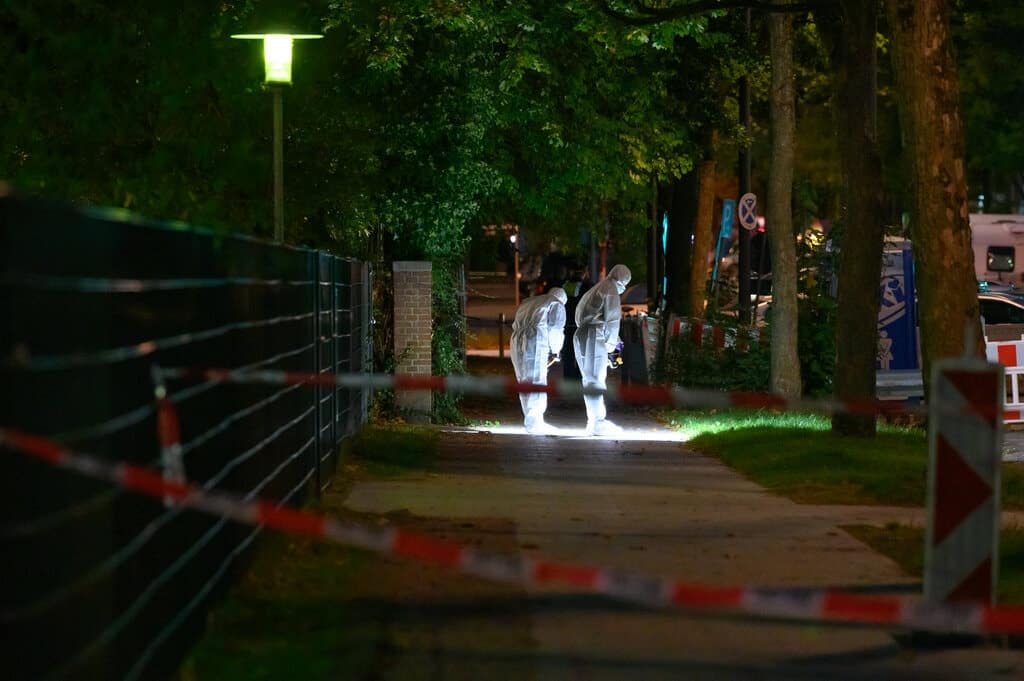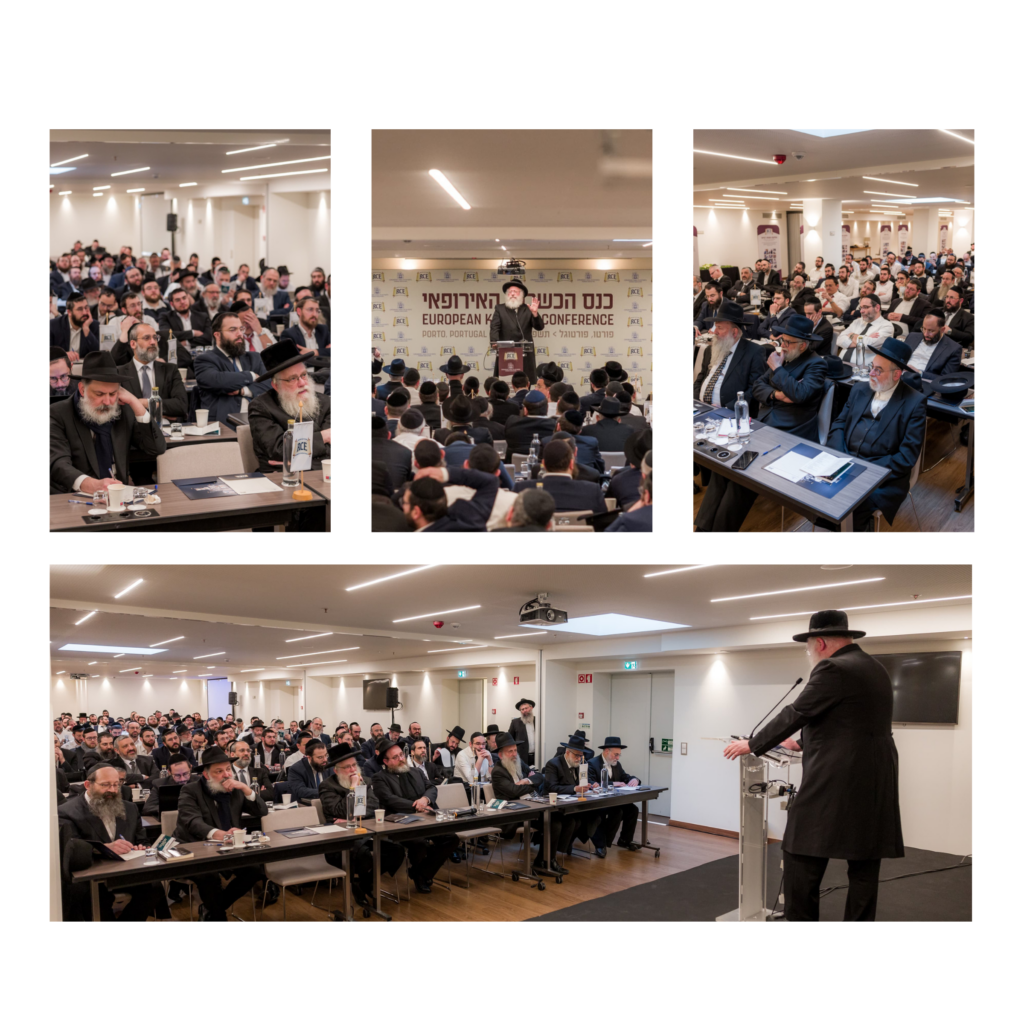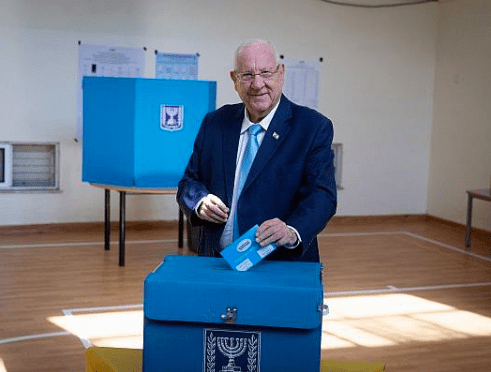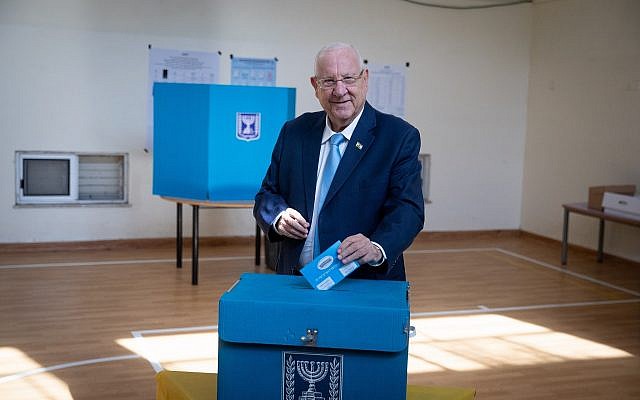President Reuven Rivlin promised to do everything he could to make sure Israelis do not have to cast ballots again a few months down the line, as the country headed to the polls Tuesday for an unprecedented rerun election.“I will do everything I can to prevent further elections and to establish a government quickly,” Rivlin said in a statement early Tuesday.Rivlin has made similar promises several times in recent weeks, including a video published Monday night urging Israelis to vote once and then not again for a while.“We must remember that, in the game of democracy, influence happens only through the ballot box,” Rivlin said in the video which was posted to his official Facebook page.“I, for my part, will do everything in my power, within the framework of the law and authority given to me by my post, to establish a elected government in Israel as quickly as possible, and to avoid another election campaign,” the president promised.
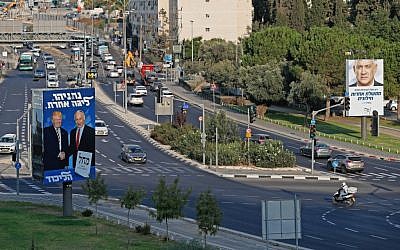
This picture taken on September 16, 2019 shows Israeli election billboards on a street in Jerusalem for the Likud and Blue and White parties. (AHMAD GHARABLI / AFP)
Casting his vote on Tuesday morning at a polling station set up in a Jerusalem school, Rivlin implored voters in Hebrew and English to vote.“You must vote. It is a real necessity,” he said.As president, one of Rivlin’s responsibilities is choosing a candidate to attempt to form a government after elections.In April, he handed that task to Likud leader Benjamin Netanyahu, who then failed to garner enough support for a government. Rather than allow Rivlin to select another candidate, Netanyahu engineered the collapse of the Knesset and called new elections for September 17.Rivlin said he understands the “feeling of frustration” among the public at having to go back to the polls.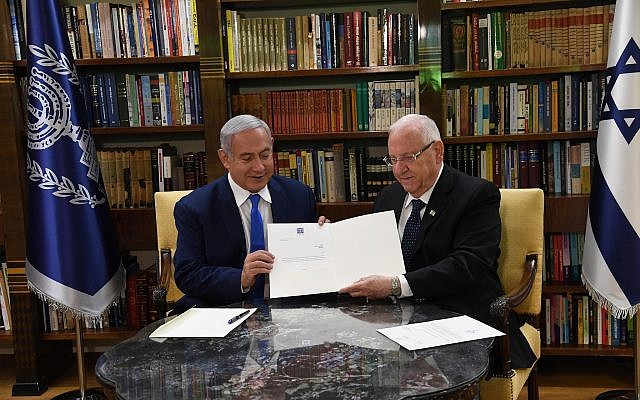
President Reuven Rivlin (right) presents Prime Minister Benjamin Netanyahu with a two-week extension to form a new government, May 13, 2019. (Haim Zach, GPO)
Surveys have shown Netanyahu and chief rival Benny Gantz of the Blue and White party both still likely falling short of being able to form a government without reaching across the aisle.Rivlin said he will task someone with forming a government within three days of receiving the confirmed finals results from the Central Elections Committee on September 25. The president usually gives the mandate to the person recommended by most lawmakers during consultations, but he has some leeway on the matter, one of his only non-ceremonial roles.The selected lawmaker will then have 28 days to produce a government. Although Rivlin can grant an extension of up to 14 days, the president stressed that he can also choose to give a shorter extension.He said if they fail to form a government he will give another lawmaker a chance, unless no suitable candidate is found, in which case 61 MKs can ask him to give the mandate to any chosen lawmaker, including the MK who was given first shot.Ultimately, the Knesset must give a vote of confidence for any new government, and without that the country would need, “God forbid,” to hold third elections, Rivlin said.The article was published on The Times of Israel




